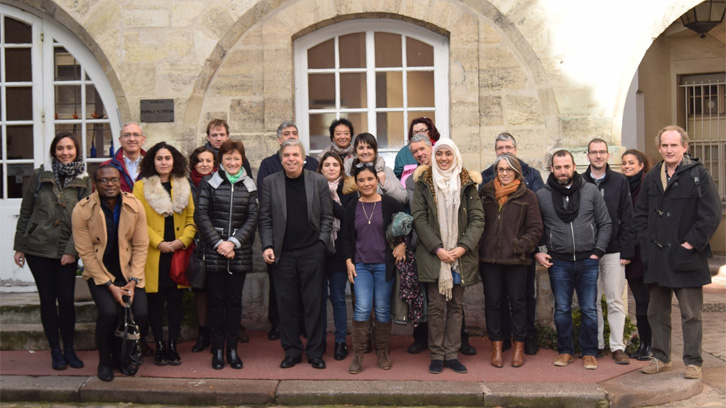A new approach to research into Alzheimer's disease

The ArrestAD project is being funded by the FET-OPEN Horizon 2020 programme with 4M Euros. ArrestAD proposes a new vision for research on Alzheimer's disease and tests a new concept for its early diagnosis and treatment. It is based on a recent discovery that demonstrates the central role of a particular type of sugar chain, heparan sulfate, as a catalyst of biochemical processes that cause Alzheimer's disease.
The programme is led by Professor Dulce Papy-Garcia of the Université Paris Est Créteil and brings together a Paris-based SME, ScreenCell, with academic research teams from the Assistance Publique Hôpiteaux de Paris; Universitat Autònoma de Barcelona; Universidad de Salamanca; Radboud University Medical Centre, Nijmegen; the Necki Institute of Experimental Biology, Warsaw; and the University of Liverpool.
Thanks to the UAB Institute of Neuroscience, together with the collaboration of the Laboratory Animal Services, the Universitat Autònoma de Barcelona participates in the project to offer its extensive experience in the Neuroscience of Translational Behaviour. It does so by providing a new research approach under the seal of the Department of Psychiatry and Legal Medicine, which addresses the disease not only from a traditional cognitive approach (loss of memory and judgement typical of this disease), but also focuses on a wide range of neuropsychiatric symptoms (such as agitation, anxiety, apathy, depression, psychosis, insomnia, etc.) associated with the disease and which severely worsens the quality of life of patients and their carers, making it in many cases necessary to institutionalise patients.
The FET-OPEN Novel Ideas for Radically New Technologies is extremely selective, with just 4% of the 544 proposals funded. It supports research projects based on new ideas emerging from recent blue skies research, oriented towards the future development of radically different technologies that can change society over the coming decades.
Institute of Neuroscience
References
Sepulveda-Diaz et al. "HS3ST2 expression is critical for the abnormal phosphorylation of tau in Alzheimer’s disease-related tau pathology." Brain (2015) 138 (5): 1339-1354. DOI: 10.1093/brain/awv056
ArrestAD Project
3-O-sulfated heparan sulfate translocation in altered membrane biology: A new strategy for early population screening and halting Alzheimer’s neurodegeneration.
http://cordis.europa.eu/project/rcn/207479_en.html

